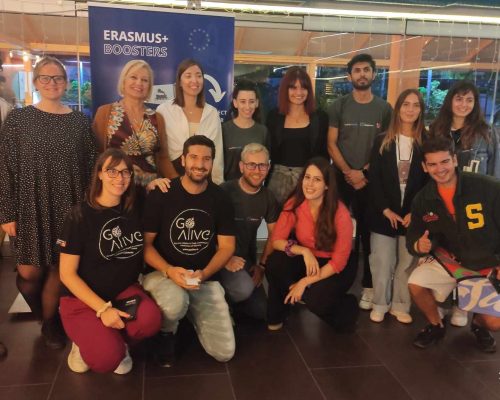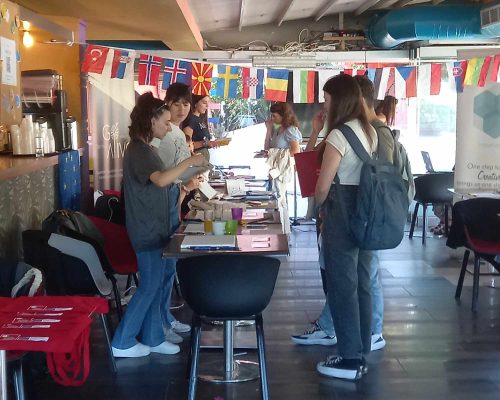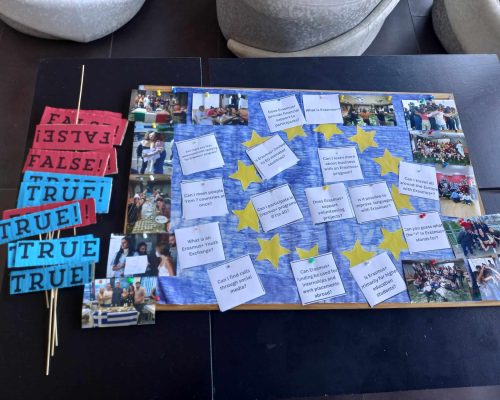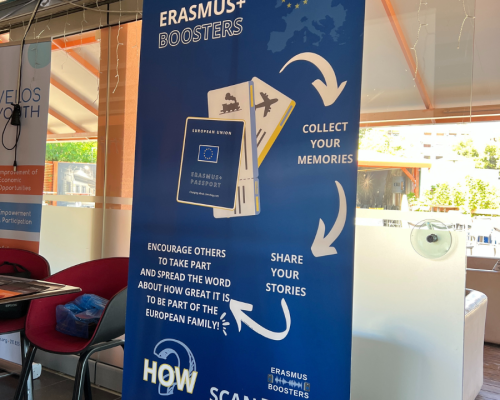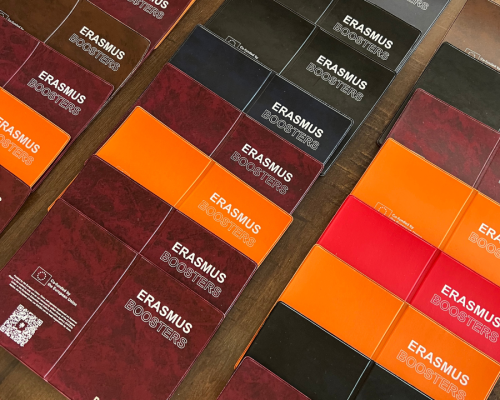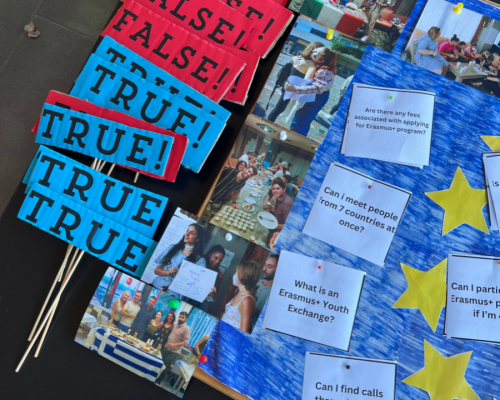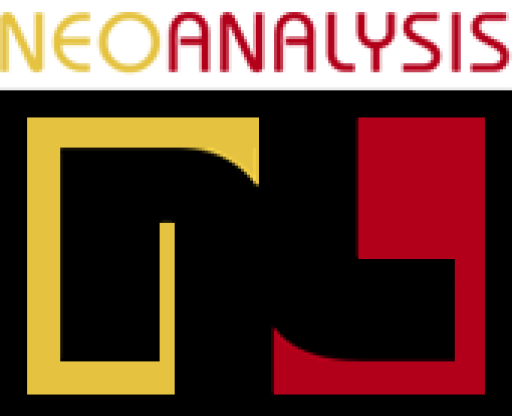The partners will reach out to suggestions from participating NGOs in the Erasmus + program and individuals by organizing an online competition of ideas and best practices for the promotion of EU Values using Erasmus+ activities. The partners will first launch the call for participation in the competition through an explanatory video. Then. They will create a platform for the resulting ideas where participants can submit their ideas. All of the proposals will be analyzed by the partners and the three best ideas will win different prizes (in money). Furthermore, three additional prizes will be assigned to other contestants in different categories.
ERASMUS BOOSTERS

About the Project
Title: Erasmus Boosters
Project ID: 2022-1-DE02-KA210-ADU-000081664
Duration: 1 December 2022 – 31 August 2024

Consortium
COORDINATOR
Dr. Ludwig Intelligent Projects
PARTNERS
NEOANALYSIS
Funded by the European Union. Views and opinions expressed are however those of the author(s) only and do not necessarily reflect those of the European Union or the European Education and Culture Executive Agency (EACEA). Neither the European Union nor EACEA can be held responsible for them.
Summary
The present context of crisis of European values, which also led to Brexit, has proven that the projects held in the context of the Union are not advertised and valued enough.
Erasmus booster project intends to help the diffusion of the many European activities and the good practices held by civically engaged people under Erasmus +, for the benefit of many adults still unaware of their own opportunities and chances of participation.
The concrete objectives of the project are:
- Make Erasmus+ activities more visible, also outside the “Erasmus+ bubble”, because Erasmus + programs are clearly recognizable only to the participants and organizers of these programs
- Develop a new learning and teaching approach as a cross-sectional task to educate more adults about the opportunities given by living in a member state of the European Union and increase the recognition and positive feelings toward European activities and the EU in general
- Improve the competencies of educators, youth workers, organization representatives, to have better Erasmus+ programs, with an increased visibility
- Multiply the effect of Erasmus+ program for the beneficiaries of the program, by making the activities more visible and educational.
Timeline
The partners will meet in several workshops to brainstorm about the feasibility of the proposed practices and evaluate them. The meetings for the evaluation will be in person, when possible and hybrid or online, when not. To test the proposed practices, partners will also ask to external organizations to take part in the evaluation step, to understand the real effect of the activities on adults or people with specific backgrounds. In the last part of the activity, partners will create (even not completely functional) prototypes, like QR-Codes printed on T-Shirts.
Each partner will organize an open fair in their local community with the aim to promote the real or virtual prototypes of new learning and teaching approaches developed during Activity 2. This activity will involve simple citizens but also people in key positions, who could use these approaches in their work to increase awareness among their target groups about activities under various EU programs. Youth workers and representatives of civil society will run different activities (e.g., informational, training courses, information divided per sector) and wear the prototypes created in the previous activity.
This activity will consist of a series of bi-weekly meetings among the partners for the exchange of ideas and coordination of the development process of the “Erasmus Boosters Manual”. The Manual will contain:
1.best practices and approaches on how to engage beneficiaries of Erasmus+ in the promotion of the program
2. guidelines for organizing “Erasmus+ Booster” Events
3. presentation of all collected ideas about the “trademark symbols”, and the results of the evaluation
4. suggestions on the use of the “trademark symbols” for the promotion of Erasmus+
During the implementation of the activity, around 30 interviews with former Erasmus+ beneficiaries will take place, to gather testimonials reflecting the positive outcomes of the program. The digital manual will then be distributed across organizations in Europe, and made available to the wider public through the use of dedicated platforms (e.g. EPALE, Erasmus+ Results, SALTO) and social media.
Partners will hold a closing full-day International Conference in Athens. It will take place on the “Europe Day” (May 9th, 2024). It will involve both the organizers and representatives of the project’s main target groups ((NGO staff, civil society representatives, school & university teachers, community workers, local authorities and European citizens). The aim of the conference is to present the Erasmus+ program in general, with a focus on Erasmus Booster’s outcomes and an open discussion in the end about the positive effects and benefits of EU-activities.
Impact
Erasmus Booster is designed to collect ideas and test prototypes of know-how transfer techniques to teach adults about EU values. It aims to foster awareness of the positive aspects of the EU for people living in one of the member states. At the same time, the project intends to improve the consciousness of educators and youth workers dealing with Erasmus+, regarding their responsibility to promote EU values in the dissemination of their projects.
